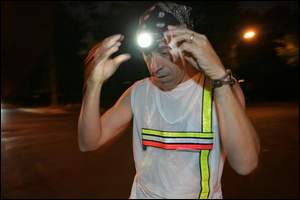 The New York Personal Injury Law blog brings you the week that was:
The New York Personal Injury Law blog brings you the week that was:
Before getting to the lawsuits, let’s look at related issues:
From the Department of Medical Mishaps: The Medical Quack lets us know that a man’s dentures were lost during surgery, and found a few days later in his throat;
Last week I wrote about Texas tort “reform” and the New York Times article on the increasing number of doctors in Texas. The Times, I asserted, blew the statistics it used regarding increasing disciplinary actions, asserting a mere 8% rise instead of 79%. This was noted by Prof. Bill Childs at TortsProf, who has now started a study of the disciplined physicians to see how many are new arrivals. Prof. Tony Sebok at FindLaw also picked up the story with Does Texas Really Have More Doctors as a Result of Medical Malpractice Reform? Why a New York Times Article Making that Claim Is Seriously Misleading.
This is not the first we’ve heard about Texas and doctors (nor likely the last), as Prof. Charles Silver wrote in November 2006 at TortDeform: What’s Up Doc? Not The Number of Physicians Practicing in Texas, with more discussion in the comments with Ted Frank. As the new doctors get credentialed and set up their practices, we will see, perhaps, if doctors facing troubles in one state pack their bags and flea to Texas, as I think they will due to the various immunities and protections afforded to them for negligence;
A battle over three jailed lawyers in Kentucky related to misappropriating tens of millions in legal fees heated up even more with the discovery that an assistant to one of the lawyers was an FBI mole that tape recorded conversations (ABAJournal). Was the wiretapping ethical will be the next issue, according to the Kentucky Law Review;
Personal injury attorney John Arthur Eaves, Jr is running for Governor of Mississippi, but as MassTorts prof Howard Erichson explains, it isn’t on the usual Democratic platform;
As many as 40 doctors, nurses and other hospital employees are under investigation or suspension for leaking information regarding the medical care of actor George Clooney after a motorcycle accident (via Kevin, M.D.). Bob Coffield at Health Care Law Blog tackles the HIPAA violation, as does Orac at Respectful Insolence and girlvet at Tales of an Emergency Room Nurse;
Dr. Wes has information on “fake” medical board certifications, something to keep in mind when checking the credentials of any medical witness that claims to be “board certified;”
And now on some actual lawsuits:
John Bisnar at the California Injury Blog has sued the California Supreme Court regarding its issuance of an unpublished opinion that strikes down a jury award. The suit is premised on a violation of due process and equal protection rights. Days later, Daniel Solove posts, Should Courts Issue Unpublished Opinions? at Concurring Opinions, wondering where the compelling argument is for such things;
Kentucky has sued Purdue, according to Bill Childs, for misrepresentation of the addictiveness of Oxycontin, for the expenses related to treatment;
Sean “Diddy” Combs, rapper, promoter and marathon runner, has been sued in New York with an allegation that his guards beat the stuffings out of a fellow promoter at at a Bronx nightclub (via Sui Generis). The suit claims $5 in damages, though making this type of claim violates New York’s prohibition against specific damage claims as per New York’s Civil Practice Law and Rules, section 3017(c):
In an action to recover damages for personal injuries or wrongful death, the complaint, counterclaim, cross-claim, interpleader complaint, and third-party complaint shall contain a prayer for general relief but shall not state the amount of damages to which the pleader deems himself entitled. (See also New York Cleans Up Claims Act);
A cop has sued the parents of a brain damaged child (via Jeralyn Merritt at TalkLeft). The child had been pulled from the family pool and the officer was there for resuscitation and slipped on the water. So where is the negligence? Was the family supposed to mop up the water while trying to save the life of their child?
Blackwater has been sued for its activities in Iraq by the Center for Constitutional Rights, also from TalkLeft, for allegedly opening fire on unarmed Iraqis;
A trial against Allstate (PI Round-Up #31) based on improper claims procedures has resulted, according to Kentucky Law Review, in a defense verdict; And blawger Hans Poppe pops up in another interview;
A $143M verdict came in against Wyeth related to increases in breast cancer for those that took hormone replacement therapy Prepro/Premarin (Howard Erichson, Mass Torts); [Update from MassTorts: Jury reduces damages by $100M, as they had included punitive damages in the compensatory award. Punitive damage hearing to follow.]
The Legal Reader notes a Rocky Mountain News story of a Colorado judge that tossed out a $1.2M verdict because, he said, the plaintiff’s attorney engaged in “disrespectful cockalorum, grandstanding, bombast, bullying and hyperbole.” (Other than that, your honor, how was the show?)
Notorious child killer Joel Steinberg succeeds in getting part of the $15M judgment against him thrown out by New York’s high court. (Decision, Launders v. Steinberg). I covered the matter previously in: NY Child Killer Wants $15M Award Tossed — Decision May Have Wider Repercussions. More commentary by Nicole Black at Sui Generis;
And Evan Shaeffer has a list of upcoming Vioxx trials, for those who are keeping score.
And finally:
(Eric Turkewitz is a personal injury attorney in New York)
 I mentioned the other day that Nicole Black at Sui Generis was accepting nominations for contests for best New York Blawg and Best New York Blawger.
I mentioned the other day that Nicole Black at Sui Generis was accepting nominations for contests for best New York Blawg and Best New York Blawger.


